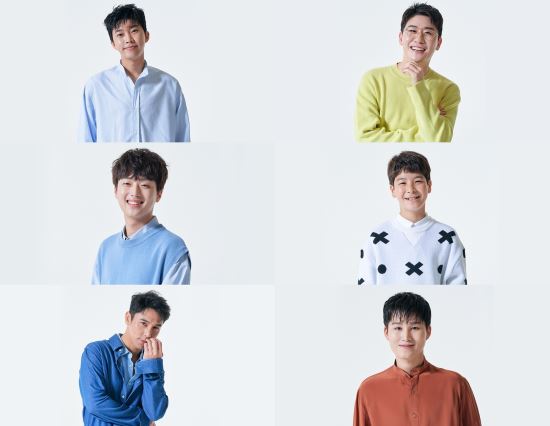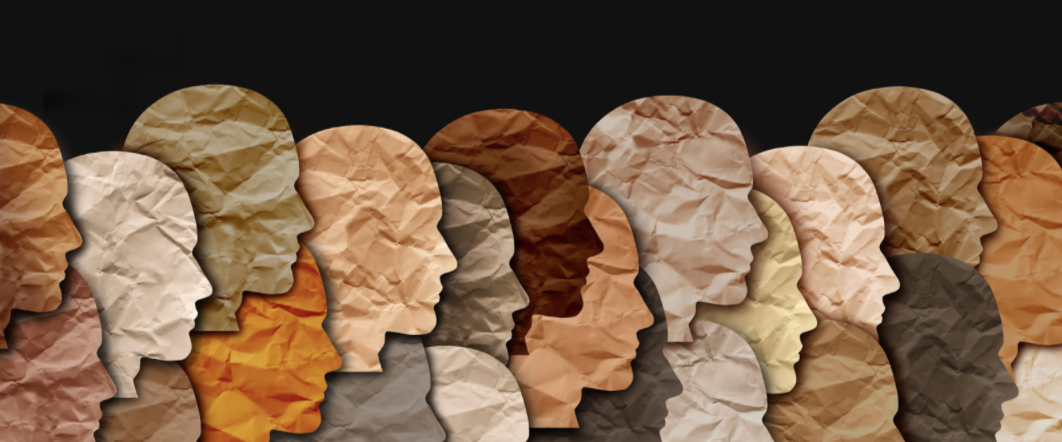In 2016, it was reported that a 24-year-old US citizen living in South Korea, Megan Stuckey, was denied entry to a bar simply because she was a foreigner. The bar called Green Light even has a sign in front of its entrance stating its policy: “Only Koreans are allowed because our employees are not able to communicate in English. It’s not racist. Sorry. Please be generous about it.” Interestingly, the girl was speaking in Korean to the staff, which means there was no language barrier, just the fact that she was a foreigner.
Unfortunately, this case is not unique. Although most places in Korea welcome foreigners, there are still some businesses that ban foreigners from entering. A sauna in Busan – “Bally Aqua Land” – has even more peculiar rules. It does not explicitly ban foreigners, but denies entry to foreign-looking customers, claiming that Koreans, the majority of their customers, would otherwise feel uncomfortable. One of the sauna’s staff members explained the policy by saying: “We are okay with people from Asia. They look like us and it is hard to tell whether they are foreigners or not. But we do not allow those very big and tall people, who clearly look like foreigners.” She also noted that sometimes foreigners behave inappropriately: foreign men trying to sneak into the women-only bathing area, or foreign couples displaying affection publicly.
Listen: NOVAsia Podcast – Episode 3: Race awareness in South Korea
“No Foreigners Allowed” policies are, in fact, not illegal in Korea. The legal system allows businesses to deny service to would-be customers based on nationality. Although recently the flow of foreigners coming into Korea has greatly increased (from 2006 to 2015, the number of foreign residents has more than tripled: from 537,000 to 1,741,919 people), South Korea has still not adopted anti-discrimination laws that would protect foreigners.
Discrimination against foreigners in Korea is based not only on a person’s nationality and physical appearance, but also on the level of education, income and occupation. According to a survey by the Gyeonggi Institute of Research and Policy Development for Migrants’ Human Rights of 560 foreign residents in 2015, 43.7% felt discriminated against at their workplaces. In another survey conducted by the Ministry of Gender Equality and Family in 2015, about 60% of Koreans said that Korean nationals should have priority over foreigners for jobs, while more than 31% did not want immigrants as neighbors.
Migrant workers, especially in the agriculture and fishing sectors suffer painstaking working and living conditions. For example, non-Korean fishermen are often subjected to racist abuse, both verbally and physically, with longer hours for less pay. In addition, current workplace regulations discriminate against foreign workers in severance pay and freedom to choose their workplaces. The employment system requires migrant workers to work for at least 4 years and 10 months to receive severance pay, while Korean nationals can get it after one year. Moreover, migrants are usually forced to leave the country to get their severance settlement paid when their contract expires. According to the Employment Outlook 2015, compared to other OECD countries, South Korea has the biggest wage gap between native and foreign workers: Korean nationals get paid 55% higher than migrant workers do.
But why does South Korea, a country with an increasingly diverse population, have such a problem? First, Korean society has always been homogeneous, and integration into such a society is always more difficult. Problems of integrating into a society where people share the same language, ethnicity and cultural values can be seen in other countries as well. For example in Japan, where Japanese people think of themselves as a homogeneous society with a strong sense of group and national identity. Japan has a high level of foreign population discrimination: almost 40 % of foreign residents who sought housing in Japan had applications turned down and almost about 25% were denied jobs in the past five years.
A sense of national identity is a strong in Korea, characterized by what some Koreans claim is a, “thousand years of ‘pure’ ancestral bloodlines, common language, customs, and history.” Korea constantly faced invasions from China, Japan, the US, and therefore had to be very protective to guard against its enemies. Thus, Japanese occupation from 1910 to 1945, in which the colonial government was both building up Korean industrial capabilities while trying to purge Korea of its traditional culture and identity, strengthened the feeling of national identity in Korea.
Finally, due to rapid economic development, South Korea has started differentiating countries according to their economic status, which then influences popular attitudes toward certain nationalities. Koreans perceive developed countries such as the United States and the United Kingdom as superiors whom they should learn from, while viewing economically developing countries as inferiors and therefore find discrimination acceptable. Korean discrimination is mostly targeted against poor Southeast Asian men who are thought to come to Korea to do the 3-D (dirty, dangerous, and demeaning) jobs, and women who are thought to come to Korea to marry well.
By Korean law, human rights activist groups like National Human Rights Commission of Korea have no legal right to enforce anything, they can only give advice. Legislation is desperately needed that would establish an enforcement mechanism that would better protect foreigners from discriminatory practices.
The issue of racism, xenophobia and discrimination in South Korea has even become a topic for discussion at the United Nations. In 2014, an independent United Nations human rights expert, Mutuma Ruteere, visited South Korea and witnessed incidents of racial discrimination. Among Ruteere’s suggestions for improvement was the enactment of a comprehensive anti-discrimination act, education on racism and xenophobia, and the avoidance of racist and xenophobic stereotypes broadcasted in the media. He also encouraged Korean authorities to improve legislation on employment to offer better protection to migrant workers and their families.
Despite these recommendations, the Korean government has been slow to adopt legislation concerning such discrimination. In the future, Korea must take more active steps to safeguard and integrate their foreign populations into their society.
- “No Foreigners Allowed”: Discrimination Against Foreigners in South Korea - June 4, 2017
- Brain Drain in Putin’s Russia - June 4, 2017
- A Struggle Against Human Trafficking in the 21st century - April 21, 2017







11 Comments
Angel
7 years agoKoreans or any nationality. Should open up their. Country to others as long as the foreighners are not commiting crimes Yet if theYY commit cultural mistakEs they should be corrected. But not assaulted. In retrospect. Koreans should respect cultural norms in other countries and Nmot expect. The. Other. Ciuntry to match their own. WHen in korea. Do as. The cultured and non. Xenophobic. Koreans.
DAVID HARRINGTON
7 years agoEVERY COUNTRY SHOULD HAVE THE RIGHT TO TAKE WHATEVER STEPS TO PROTECT ITS OWN IDENTITY, CULUTURE, CUSTOMS AND WAY OF LIFE without interference. If you don t like the deal, then don t go there! (sorry it will only allow me to use caps here!)
DAVID HARRINGTON
7 years agoEVERY COUNTRY SHOULD HAVE THE RIGHT TO TAKE WHATEVER STEPS TO PROTECT ITS OWN IDENTITY, CULTURE, CUSTOMS AND WAY OF LIFE without interference. If you don t like the deal, then don t go there! (sorry it will only allow me to use caps here!) i ALSO SEE NOTHING WRONG WITH THE INDIGENOUS POPULATION HAVING PRIVELEGES AND MORE RIGHTS THAN AN IMMIGRANT.
John doe
7 years agoDavid youre ignorant.. i live in the us and it is filled with immIgrants and i believe that they should have the same rights as i do as long as they are here legally. You can keep your cultures while also having Other cultures in your society. Discrimination is dUmb regardless of the case, there is very little reason for it to be Acceptable.
Bob the builder
7 years agoYes yes john, since you live in the United states then every country in the world should follow exactly what you stated, right?
wrong since every country has their own rules then people should follow them accordingly. Until a law is made that changes that, too bad.
a
7 years agogreen light LOL thats a hook up bar and i do understand why foreigners are not allowed there pffft
Jake
7 years agoThe United states is a countr that is made up of multiculturalism frOm the beginning and is why it is a melting pot and Therefore tolerates other races and culture. Even still racism Still exists either blantantly or silently wHich is a problem without a solution no matter how much you want to get your own government to legislate this issue. Having said that korea which has been for thousands of years been a homegeneous country will be harder to adjust to where you wanting changing. I don’t think anyone has any authority to say how they should run their own country where they have Been living for all their lives and never had to explain themselves to foreigners such as yourself. It is their own country.
Jake
7 years agoThe United states is a countr that is made up of multiculturalism frOm the beginning and is why it is a melting pot and Therefore tolerates other races and culture. Even still racism Still exists either blantantly or silently wHich is a problem without a solution no matter how much you want to get your own government to legislate this issue. Having said that korea which has been for thousands of years been a homegeneous country will be harder to adjust to where you want changing. I don’t think anyone has any authority to say how they should run thEir own country where they have Been living for all their lives and never haVe to explain themselves to foreigners such as yourself. It is their own country.
Em
6 years agoI am a teenage adoptee–born in Korea, but raised in the United States for the vast majority of my life. I have a twin sister and a Russian-mongolian adopted younger brother, while my parents are American. Recently, we have made plans to visit Korea for vacation. Upon reading this article, I am wondering if I should be concerned about discrimination against myself and my family. My siblings and I were born out of wedlock, something that I’m not afraid to admit. If a Korean native were to encounter this mixed family, he/she might jump to conclusions. I would hate for there to be conflict because of ethnical differences, and I take a lot of pride in Korea being my homeland. Do you think I’ll receive backlash for being a “Westernized” adoptee?
Elle
6 years agoMy daughter and I recently went on a four day trip to South Korea. We are from the UK. We personally found it to be an amazing city but a couple of experiences were a little off putting. One being we entered an almost empty cafe and we’re told it was full and basically told we were unable to enter. It was something we had never experienced in the UK. However, we chose to look on the bright side; perhaps they were expecting a big party to arrive.
Episode 3 - Race Awareness in South Korea (with Mariam Maréchal) - Novasia
6 years ago[…] Read: No foreigners allowed – Discrimination against foreigners in South Korea […]
Comments are closed.